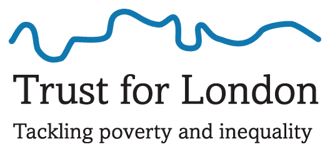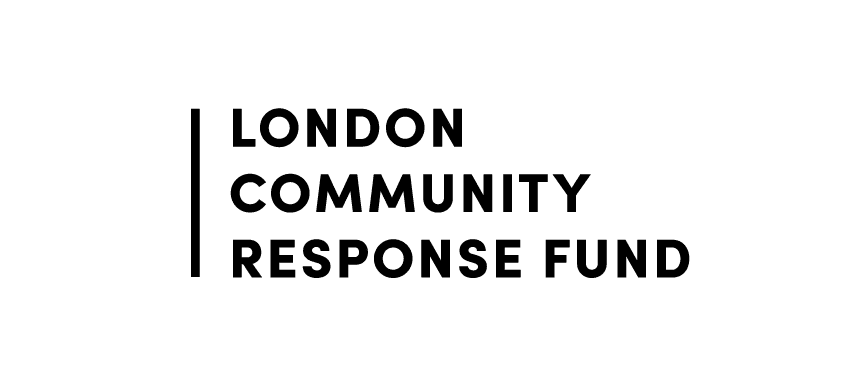The Right to Freedom of Expression and its Limitations
Freedom of expression is a fundamental right protected under the Human Rights Act 1998 by Article 10 of the European Convention on Human Rights (ECHR), and it is also protected under common law. However, this right, “carries with it duties and responsibilities” and “may be subject to such formalities, conditions, restrictions or penalties as prescribed by law and are necessary in a democratic society.” Any restrictions on freedom of expression may be for the following purposes: national security, public safety, territorial integrity, preventing crime or disorder, protecting health or morals, protecting the reputation or rights of others, preventing the disclosure of information received in confidence and maintaining the authority and impartiality of the judiciary.
Thus, freedom of expression may be limited in certain circumstances, and it does not protect statements that unlawfully discriminate against, harass, or incite violence or hatred against other persons and groups.
What is hate speech?
Although there is no legal definition of hate speech under UK law, the Equality and Human Rights Commission states that it refers to, “forms of expression which incite violence, hatred or discrimination against other persons and groups, particularly by reference to their ethnicity, religious beliefs, gender or sexual orientation, language, national origin or immigration status.”
Hate speech is not protected by freedom of expression, and the state can lawfully prevent and punish expressions of hate speech.
Additional Legislation and Covenants Outlawing Hate Speech in the UK
There is no specific piece of legislation which relates to hate speech in the UK. Instead, a number of laws forbid hatred or discrimination against individuals or groups based on protected characteristics.
Public Order Act 1986
Section 4 of the Public Order Act 1986 makes it an offence for a person to use, “threatening, abusive or insulting words or behaviours that causes, or is likely to cause, another person harassment, alarm or distress.” This law also includes language that incites, “racial and religious hatred,” “hatred on the grounds of sexual orientation” and “encourages terrorism.”
Section 5 of the Public Order Act 1986 makes it an offence for a person to use, “threatening or abusive words or behaviour, or disorderly behaviour, or displays any writing, sign or other visible representation which is threatening or abusive within the hearing or sight of a person likely to be caused harassment, alarm or distress thereby.”
Crime and Disorder Act 1998
The Crime and Disorder Act 1998 deals with existing crimes such as assault or damage to property, which are perceived to be motivated by hostility or prejudice based on a person’s race or religion (or perceived race or religion). Thus, these hate offences can also be related to hate speech.
Criminal Justice Act 2003
The Criminal Justice Act 2003 applies if the perpetrator of an offence was motivated by hostility based on a person’s sexual orientation, disability, or transgender status.
Equality Act 2010
The Equality Act 2010 protects individuals from discrimination on grounds of their age, disability, gender reassignment, marriage or civil partnership, race, religion or belief, sex or sexual orientation. The Act enables private individuals to commence legal action against a person or organisation for discrimination on the protected grounds in various contexts including employment, in the provision of services and within the education sector. Therefore, if somebody is the target of hatred because they possess one or more of these protected grounds, the offence is a hate crime.
Malicious Communications Act 1988
Section 1 of the Malicious Communications Act 1988 makes it an offence to send letters or other offensive electronic communications which conveys an indecent or grossly offensive message, threat or information which is false and known or believed to be false by the sender. The communication must also cause the recipient distress or anxiety.
Communications Act 2003
Under Section 127 of the Communications Act 2003, it is an offence for a person to, “send by means of a public communications network a message or other matter that is grossly offensive or of an indecent, obscene or menacing character” or “causes any such message or matter to be so sent.”
Terrorism Act 2006
The Terrorism Act 2006 criminalises the publication and dissemination of material that could be seen as encouraging acts of terrorism.
International Covenant on Civil and Political Rights (ICCPR)
The ICCPR is an international human rights treaty which was ratified by the UK in 1976. Article 19 of the ICCPR protects freedom of expression, but similarly to the ECHR, it highlights limitations in relation to this right. Specifically, Article 20 of the covenant prohibits war propaganda and “advocacy of national, racial or religious hatred that constitutes incitement to discrimination, hostility or violence.”
The Rise of Online Hate Speech
Social media can act as an amplifier of hate speech, as it enables hate groups to develop and connect. Social media platforms also give users the ability to publish online content anonymously or under a pseudonym.
A study published in the PLOS ONE journal in January 2023 entitled, “Offline Events and Online Hate,” found that real-world events such as elections, assassinations and protests can lead to spikes in online hate speech on mainstream and fringe media platforms. The study found that there are links between events and the type of hateful content they trigger, but this is not always the case.
For example, the murder of George Floyd in 2020 and the subsequent Black Lives Matter protests, led to a 250% increase in race-related online hate speech, but there was also a general increase of online hate speech after the occurrence of these events. More recently, according to data collected by the Global Project Against Hate and Extremism, there was a 479% increase of anti-Semitic and anti-Muslim hate speech on the platform 4Chan between 6 October 2023 and 8 October 2023.
According to another study published in the Sage Journals in 2022 titled, “How social media users perceive different forms of online hate speech: A qualitative multi-method study,” the perception of online hate speech is not universal, as perception is dependent on each individuals’ characteristics, the presentation of a message and its content. For example, individuals who have experienced threats to their social identity may pay more attention to hate speech and be more emotionally affected by it, than those who have not.
In terms of the presentation of messages, the study found that images conveying messages of hate, were recognised more often than textual hate speech. In relation to content, the study found that direct hate speech evoked stronger emotional reactions from participants and was more likely to be reported, while indirect hate speech was noted but not regarded as problematic or harmful by some of the participants. Additionally, participants demonstrated more uncertainty in relation to reporting indirect hate speech.
Tackling Online Hate Speech
Online hate speech can be reported using the ‘Report’ function available to users of the platforms that the hate speech is seen on. According to TrueVision, a police-funded website designed to provide information about hate crime, most websites have rules known as ‘acceptable use policies,’ which set out what cannot be put on websites and do not allow comments, videos and photos that offend or hurt others.
Online hate speech can also be reported directly to the police. The National Online Hate Crime Hub was established in 2017 to tackle the emerging threat of online hate crime and is run by police officers for the National Police Chiefs’ Council (NPCC). The hub intends to provide victims with better support, encourage reporting and help to increase the number of prosecutions for hate crime. However, it is significant to note that the hub is not a 24-hour emergency service. Thus, if there is any immediate risk of danger, one should call 101 or 999 to contact the police. Referrals of hate speech can be made via TrueVision and each individual complaint will be assessed, relevant cases will be assigned to the appropriate local force for investigation and victims will be kept updated throughout the process.
Another relevant initiative to mention in relation to tackling hate speech is Hatelab – a global hub for data and insight into hate crime and hate speech. It was established by two professors at Cardiff University to measure and counter the global issue of online and offline hate speech and has received more than £1.7m in funding from the Economic and Social Research Council (ESRC) and the US Department of Justice. In 2017, the creators of Hatelab developed the Online Hate Speech Dashboard in partnership with the National Police Chiefs’ Council’s (NPCC) National Online Hate Crime Hub, to address this global challenge. The dashboard uses artificial intelligence to ethically detect hate speech across the strands of race, religion, disability and sexual orientation, and it is being piloted within policing, government and civil society organisations to help them monitor hate speech in real time.
Recent Legal Developments Relating to Freedom of Speech in the United Kingdom
Online Safety Act 2023
The Online Safety Act 2023 became law in the UK in October 2023 and Ofcom is now the formal regulator for online safety. The Act aims to protect children from harmful online content, provide adults with more choices regarding what they see online, and places an obligation on technology companies to prevent and remove illegal content.
The Act creates a new duty to protect adult users from content which is lawful but might cause ‘harm,’ as it requires social media platforms to remove content that is legal but may be, ‘psychologically harmful’ to adults and children, even if no actual harm is caused. This has resulted in the Act being criticised by technology firms, free speech activists and privacy groups who are concerned that it threatens freedom of expression.
Higher Education (Freedom of Speech) Act 2023
The Higher Education (Freedom of Speech) Act 2023 was introduced by the UK Parliament in May 2023. The Act requires both universities and student unions to, ‘actively promote’ free speech and academic freedom.
Thus, in relation to regulation, there is now a ‘tort’ which allows academics to bring legal action against universities if they believe that they have suffered reputational damage or adverse consequences to the progression of their career. Furthermore, staff and students can apply for an injunction in the county court if they believe that their free speech duties have been infringed.
How can I report a hate crime or incident?
You can report a hate crime or incident to the police by visiting a police station or by calling 999 if the crime is in progress or if someone is in immediate danger. If the crime is not an emergency, you can report it to the police by calling 101.
Hate crimes or incidents can also be reported using True Vision, a police-funded website developed to allow individuals to report hate crimes online. Please note that although not all hate incidents will amount to criminal offences, they should still be reported to the police.
Additionally, hate crimes or incidents can be reported to victim support organisations such as the West London Equality Centre by calling our designated hate crime helpline at 0800 2943 479. We can offer free legal advice regarding the next steps to be taken and preserving evidence, contact the police on behalf of victims and or witnesses and consider practical solutions to help deal with incidents or the aftermath of incidents.
How we can help you
Our team comprises of qualified legal professionals, legal advisors, caseworkers and volunteers who can help to provide concise and accurate legal advice and carry out casework on hate crime matters.








